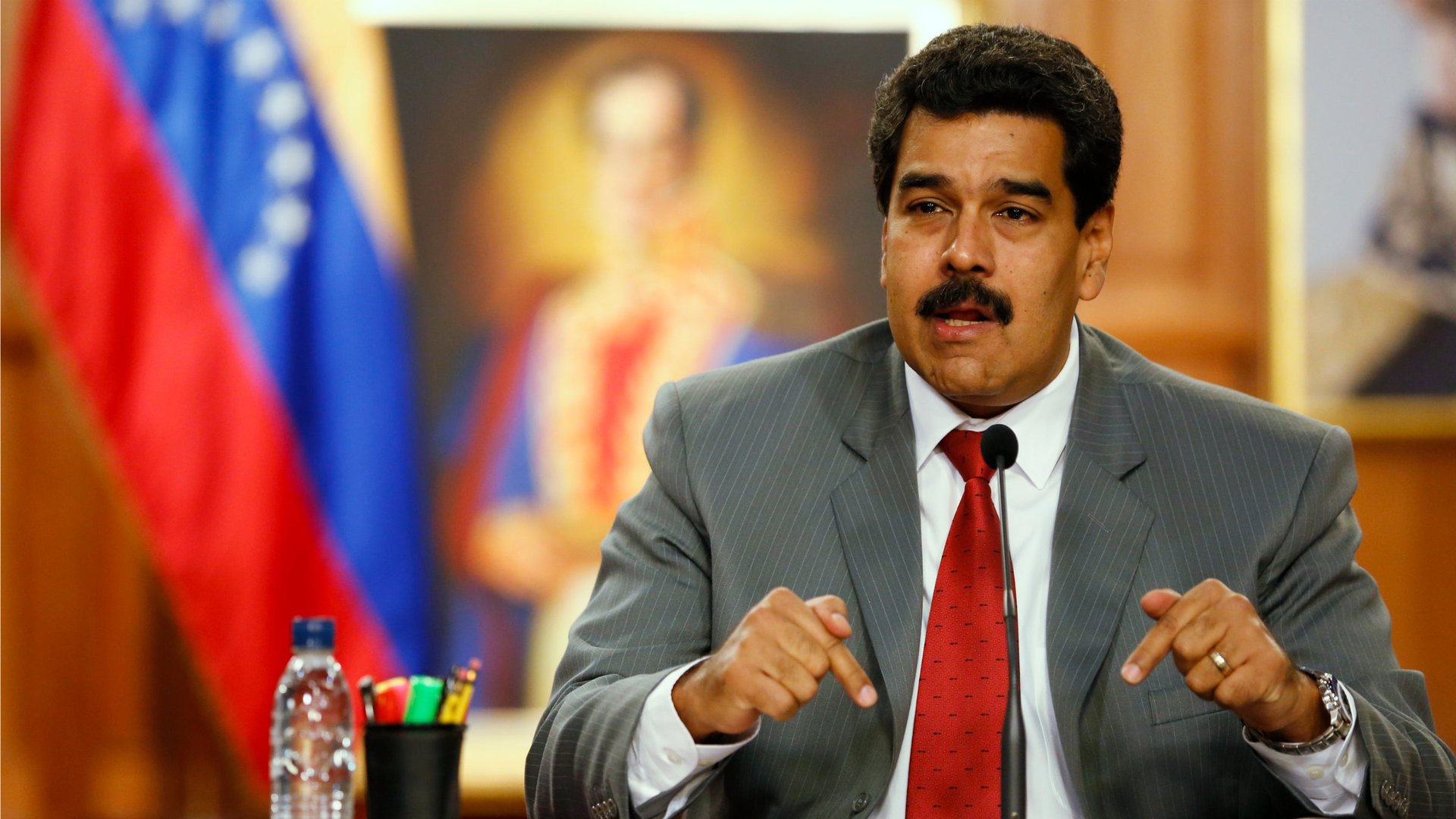Venezuela just invented the world’s creepiest supermarket loyalty card
Venezuelan president Nicolás Maduro has a new idea for how to fight his country’s shortages of basic goods: keep electronic records of what everyone is buying.


Venezuelan president Nicolás Maduro has a new idea for how to fight his country’s shortages of basic goods: keep electronic records of what everyone is buying.
Maduro announced plans to launch what he’s calling a secure supply card (link in Spanish), which will allow Venezuelans to sign up and receive benefits, such as discounted prices, at state-owned supermarkets. “Like at other supermarkets around the world, it will provide a set of initiatives to motivate and reward everyone who participates in the supply mission program,” Maduro announced to a crowd of supporters over the weekend.
The card, as displayed by Maduro, will carry the colors of the Venezuelan flag:

But that hardly means everyone in the country is eager to wave it around.
According to Maduro, the intent is to help minimize the impact of inevitable price increases at supermarkets, and reduce the amount of opportunistic goods smuggling (link in Spanish). Basic goods shortages have made it either impossible or expensive to come by things like toilet paper, sugar, flour, and eggs. As of January, Venezuelans couldn’t find more than a quarter of the things they were looking for, according to the country’s national statistics bureau. And inflation is through the roof. While exact details of how the card will work aren’t known, the understanding is that it will function as a subsidy mechanism by using promotions and a reward system.
But according to the National User and Consumer Alliance (Anauco), a local non-profit consumer watchdog, the card scheme is a ploy to increase oversight of Venezuelans’ spending. The card, according to Anauco, is essentially a ration card, only one called by a different name. The true purpose is ”rationing purchases by announcing that they cannot be made on a daily basis,” Luis Vicente Leon, president of local think-tank Datanálisis, told El Universal (link in Spanish).
The fear is that by logging Venezuelans’ purchases, the government will be able to use that data to subsequently curb supply (by way of purchase limits.) The problem is that what the country needs more is for the market to dictate the prices at which the government—as well as the country’s private grocery stores—can properly feed and clothe its citizens, so it doesn’t, say, run another 40-million-roll toilet paper deficit. Amid near-hyperinflation, Maduro’s government has opted for artificial price-controls. But lower prices have led local producers to cut back on supplies, and led to more shortages and even higher inflation. The supply card program is most likely another barely-disguised way of kicking the country’s economic issues down the road.